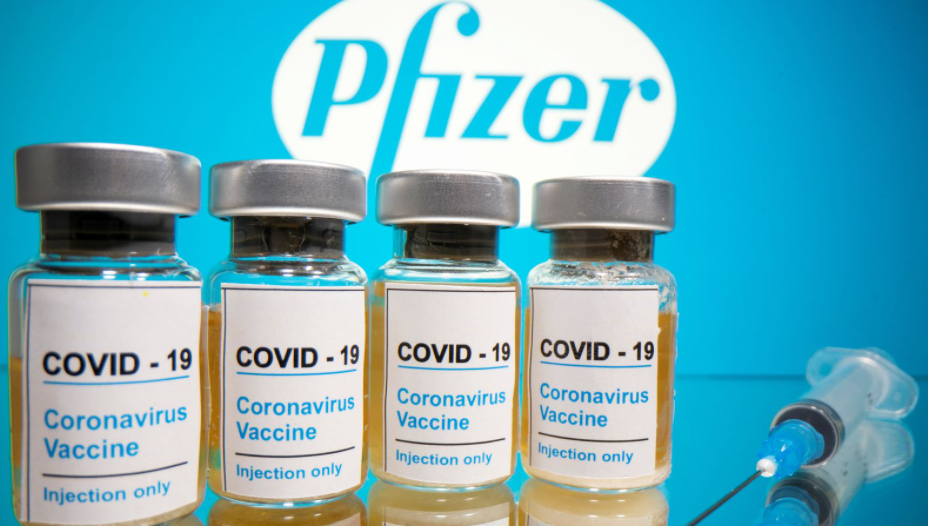
Pfizer Q1 2023 Revenues Exceed Expectations Despite Decline in Covid-19 Vaccine Sales
Pharmaceutical giant banks on new drugs and acquisitions to offset patent expirations and reduced Covid product sales, aiming for a post-pandemic boom
Pfizer, the American pharmaceutical giant, reported impressive Q1 2023 revenues of $18.28 billion, surpassing Wall Street's expectations of $16.59 billion. The company's adjusted earnings per share reached $1.23, exceeding analysts' predictions of $0.98 per share. Pfizer's performance was strong despite a 75% decrease in coronavirus vaccine sales to $10 billion, attributed to lower demand in international markets and a decrease in shipments from the US government.
The company maintains its 2023 sales forecast of $67-71 billion and a full-year adjusted earnings forecast of $3.25-$3.45 per share. Pfizer expects coronavirus-related sales to decline in 2023, projecting $13.5 billion in vaccine sales and $8 billion in revenue for the antiviral pill Paxlovid. Excluding coronavirus products, Pfizer predicts a 7% to 9% revenue growth this year.
Paxlovid sales nearly tripled to $4.07 billion in Q1 2023, surpassing estimates of $3.13 billion. This growth was primarily driven by strong demand in China and new launches in international markets. In addition to Paxlovid, Pfizer's non-Covid revenue growth was supported by recently acquired companies such as Biohaven Pharmaceutical and Global Blood Therapeutics, as well as strong sales of other medications like Sulperazon, an antibiotic for the treatment of urinary tract infections, and Eliquis, a blood thinner medication.
Sales of Pfizer’s Covid-19 vaccine Comirnaty slumped 77% to $3.06 billion in Q1 2023, but still topped estimates of $2.37 billion, according to Refinitiv data. The decline in vaccine sales was primarily driven by lower contracted deliveries and demand in international markets, as well as lower U.S. government contracted deliveries as the country prepares to shift Covid products to the commercial market later this year.
Pfizer and other pharmaceutical companies like Moderna and Johnson & Johnson are expecting a drop in Covid-related sales as the world emerges from the pandemic. However, Pfizer plans to rely on mergers and acquisitions (M&A) and a robust pipeline to sustain growth. The company expects to launch 19 new vaccines and treatments over the next 18 months, with the potential to generate $20 billion in 2030 sales.
Upcoming products include Pfizer's RSV vaccine for older adults, which could win FDA approval later this month, a new pneumococcal vaccine for children, and a treatment for ulcerative colitis from the recently acquired Arena Pharmaceuticals. The pipeline also includes a hair loss drug, pending regulatory decisions in the United States.
The company aims to add $25 billion in revenue through dealmaking by 2030. The recent $43 billion acquisition of Seagen, which specializes in cancer therapies, is expected to contribute more than $10 billion in risk-adjusted sales by 2030. Pfizer plans to focus on non-Covid revenue growth of 7% to 9% this year and expects the majority of growth to occur in the second half of the year, driven by new drugs.
Launches of Pfizer's RSV vaccine and treatments for ulcerative colitis and hair loss are anticipated by the end of the year, pending regulatory decisions in the United States. The company's strong performance and extensive pipeline demonstrate its commitment to continue growing and evolving beyond the pandemic, focusing on a diverse range of innovative treatments and therapies to address various medical needs.
Read More
-
UCO ETF Price Forecast: Can NYSEARCA:UCO at $18.57 Ride a 2026 Oil Squeeze?
18.12.2025 · TradingNEWS ArchiveStocks
-
XRPI at $10.50 and XRPR at $14.93 Hit XRP ETF Lows While XRP-USD Holds $1.84 After 30 Days of Inflows
18.12.2025 · TradingNEWS ArchiveCrypto
-
Natural Gas Price Forecast: Henry Hub Holds Around $4 as EIA Draw Hits 167 Bcf
18.12.2025 · TradingNEWS ArchiveCommodities
-
USD/JPY Price Forecast: Pair Holds Above 155 As BoJ And US CPI Set Up A Major Break
18.12.2025 · TradingNEWS ArchiveForex


















